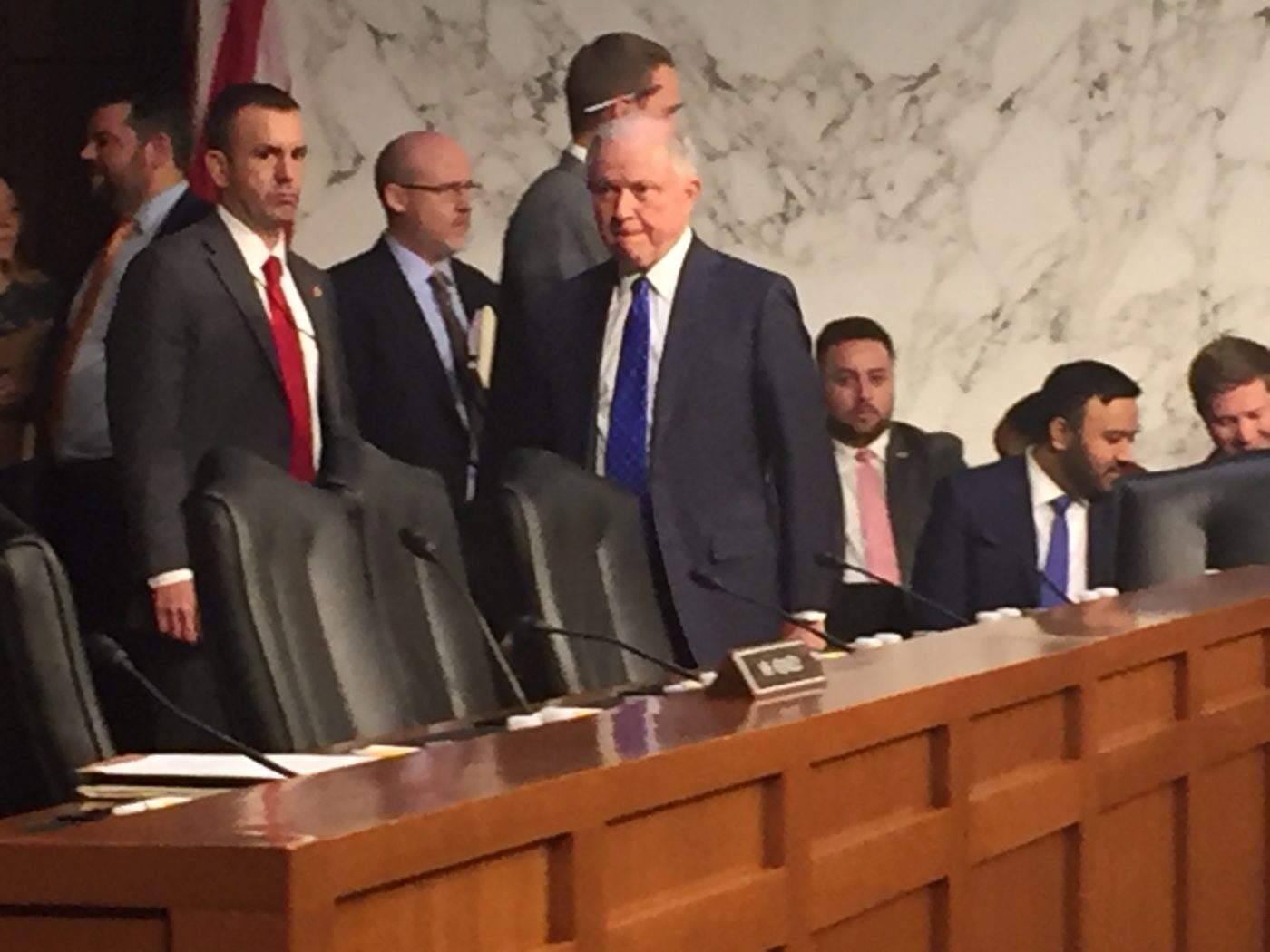Wednesday, October 18th 2017 (WASHINGTON) – The investigation into Russian interference in the 2016 presidential elections continued to follow Attorney General Jeff Sessions when he appeared before the Senate Judiciary Committee on Wednesday, his first appearance on Capitol Hill since June.
Sessions recused himself from the official Department of Justice probe into election interference back in March, but senators pressed him to discuss his meetings with Russian officials during the campaign. He also faced a series of questions about his role in the firing of former FBI Director James Comey and any attempts by the administration to disrupt the ongoing investigation by Special Counsel Robert Mueller.
Despite the public focus on the attorney general in the context of the Russia probe, Sessions told the Senate panel that he has not been interviewed or received an interview request from Mueller.
He added that he “absolutely” wants to see Special Counsel Mueller complete his investigation “professionally.”
President Trump has repeatedly referred to the Russia investigation as a “witch hunt” and fueled rumors that he was considering firing Mueller.
Session’s exchange with his former colleagues got heated when Sen. Al Franken (D-Minn.) accused the attorney general of “moving the goal post” and changing his answers to the committee regarding his communication with Russian officials during the campaign.
“I don’t have to sit in here and listen to [accusations] without having a chance to respond,” Sessions charged as Franken recounted the attorney general’s evolving responses to lawmakers’ questions about Russia.
“I conducted no improper discussions with Russians at any time,” Sessions stated. “I don’t think it’s fair for you to suggest otherwise.”
While numerous lawmakers pressed Sessions on Russian collusion, chairman Chuck Grassley (R-Iowa) raised new questions about possible collusion between then-Secretary of State Hillary Clinton and Russian officials involved in a shady uranium mining deal.
On Tuesday, Circa News reported that the Department of Justice under President Barack Obama had an ongoing criminal investigation into Russian officials involved in the acquisition of Uranium One and 20 percent of U.S. uranium mining rights.
That acquisition was allowed to go through under the previous administration, while at the same time the Clinton Foundation was reportedly receiving millions of dollars from interested parties in the transaction.
“This committee has an obligation to get to the bottom of this issue,” Grassley asserted. He went on to question Sessions about whether the Justice Department was looking into the matter.
Sessions would not comment on an ongoing investigation but promised to review Grassley’s concerns. “The Department of Justice will take such actions as [are] appropriate, I know,” he said, adding that some individuals involved in the transaction have already gone to jail.
Sessions’ role in the firing of James Comey was still fresh in the minds of a handful of senators, including ranking member of the Judiciary Committee Diane Feinstein (D-Calif.), who has called on the committee to investigate “obstruction of justice” by President Trump in the Comey affair.
Much like Sessions’ June appearance before the Senate Intelligence Committee to discuss the Comey firing, the attorney general dodged all questions about discussions he had with President Trump about Comey’s role in the Russia investigation or the Hillary Clinton email scandal. He made a vague case for executive privilege saying he was “not able to discuss the content” of conversations with the president.
Democrats were frustrated with the response which they hoped to preempt, sending a letter to the Department of Justice last week stating their expectation that the attorney general will “be prepared to answer completely all questions” in areas where the president has not explicitly invoked executive privilege.
While many senators focused their questions on the events of the 2016 election, Ben Sasse (R-Neb.) raised questions about the DOJ’s preparations for future election interference by a foreign adversary.
“People reading the intelligence know that Russia is going to be back in 2018, they’re going to be back in 2020,” Sasse said, asking what “concrete steps” the Department of Justice is taking to harden U.S. democratic institutions against foreign interference and information operations.
“I’m not sure we have a specific review underway at this point in time,” Sessions admitted, adding the department is “probably not” doing enough to prepare for future interference by the Russians or another foreign adversary.






